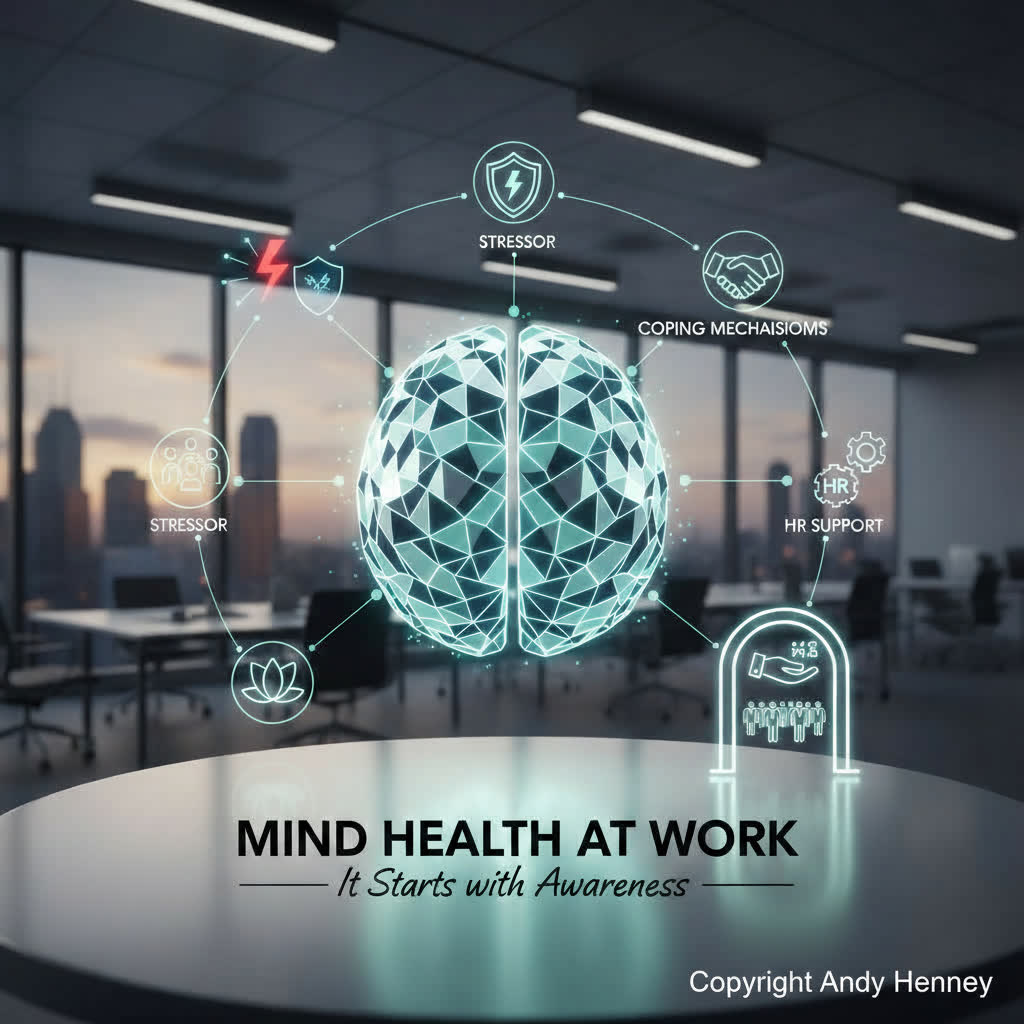
Mind Health: A Strategic and Human Priority
Over the years, I’ve completed a range of mental health and wellbeing courses, and several key principles continue to stand out in professional practice:
The importance of identifying stressors early and promoting effective coping strategies.
Partnering with HR and leadership to ensure employees have the right tools, systems, and training to perform effectively.
Ensuring clear signposting pathways so individuals can access specialist or clinical support when needed.
Having personally experienced burnout, I recognise how critical it is to view wellbeing not as a one-off initiative but as an integral part of organisational culture. Preventative measures, open dialogue, and supportive management all play a vital role in maintaining healthy teams.
I increasingly prefer to use the term ‘mind health’ — it captures the proactive, cognitive side of wellbeing and encourages us to ask, “How are your thoughts?” rather than only focusing on emotional states.
In today’s world, external influences — from media to global events — can significantly affect how people feel and think. As employers, we may not be able to change those circumstances, but we can absolutely create workplaces that provide stability, positivity, and psychological safety.
Because sometimes, all someone really needs is something good to think about — and that’s something we can influence.
